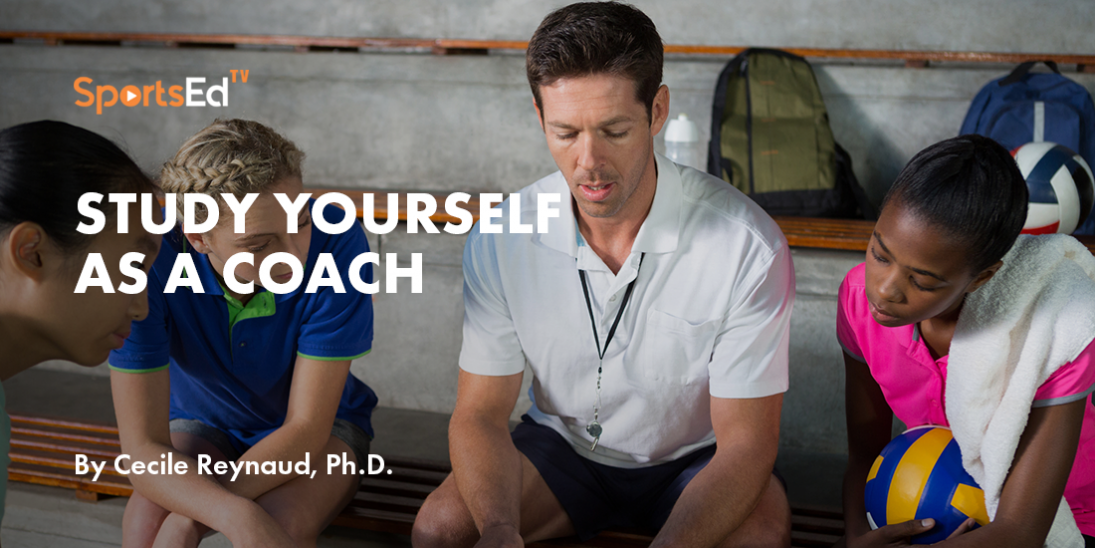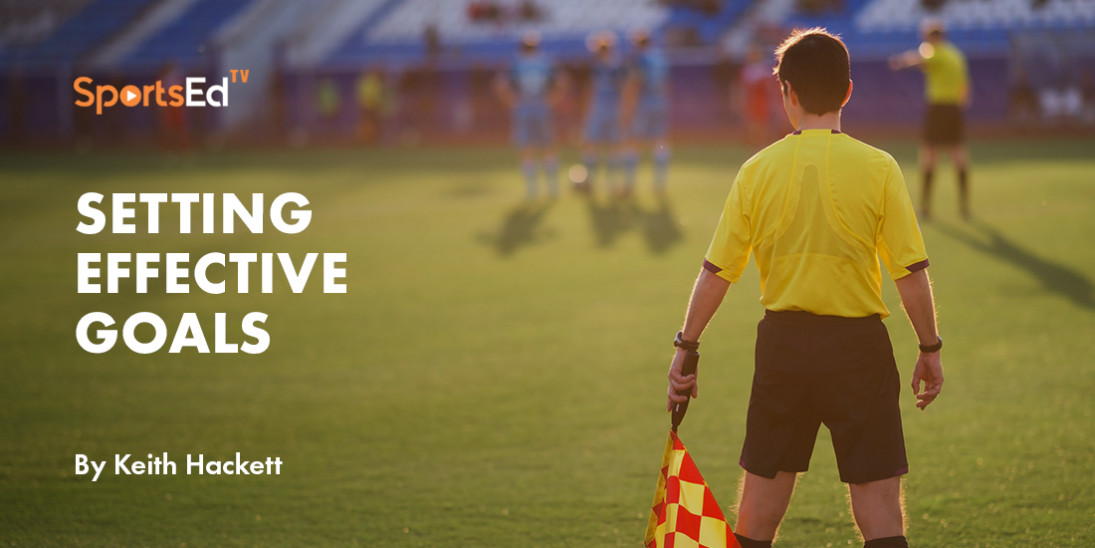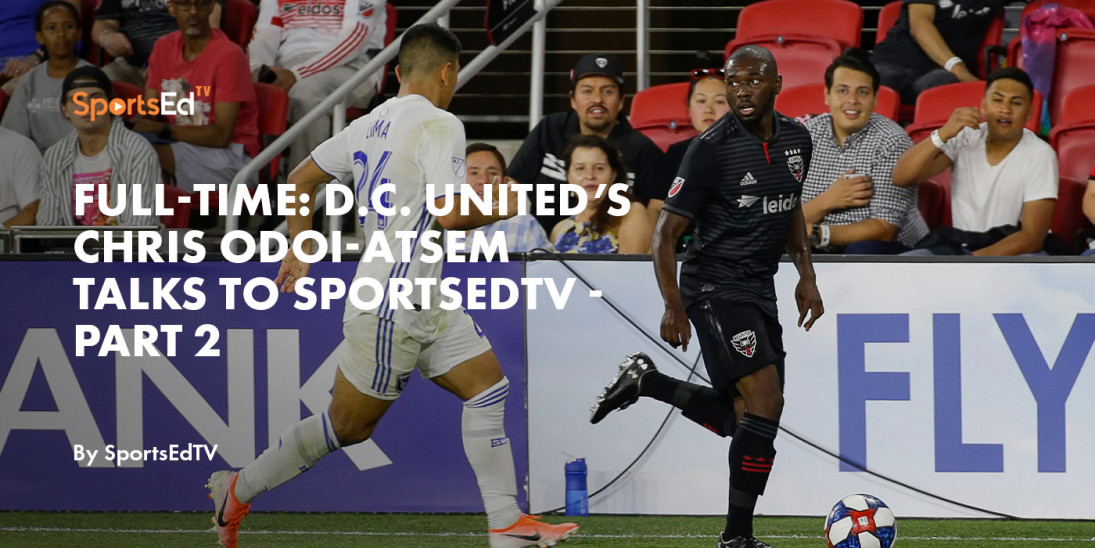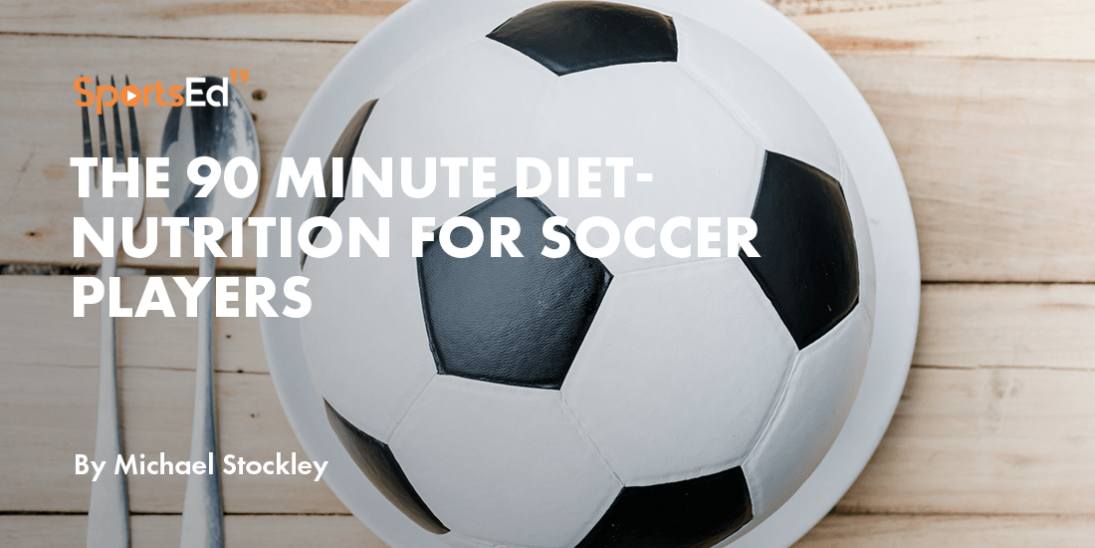Soccer
Welcome and thanks for visiting...

Dominic Kinnear On His Youth And Journey To Professional Soccer
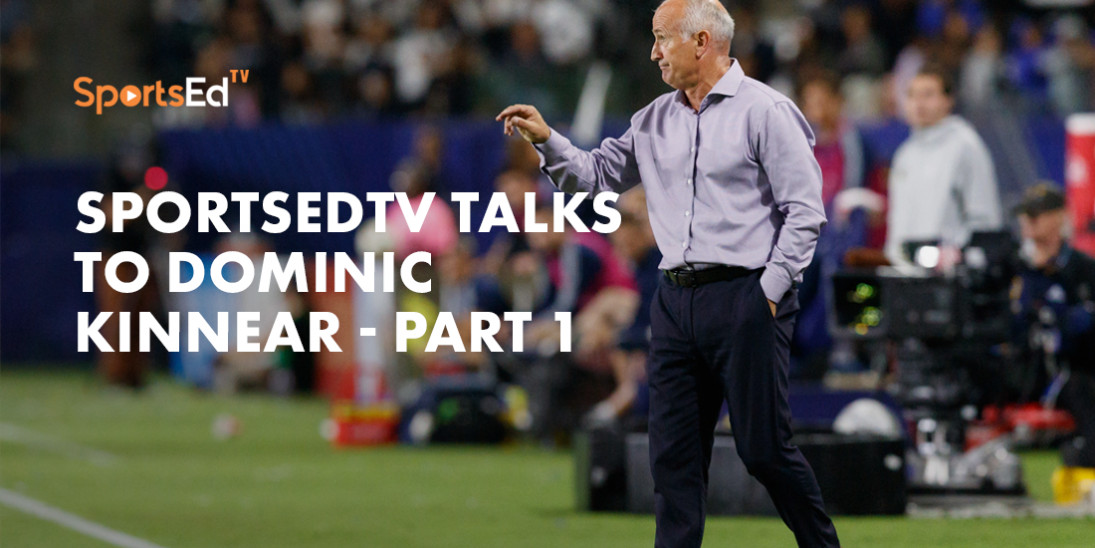
SportsEdTV: Tell us about your childhood and youth soccer experience, and especially when you started to think about playing professionally.
Dominic: I was born in Glasgow, Scotland, and we moved over to the United States around 1970 when I was about 2 or 3 years old. My father was an electrician and a semi-professional soccer player back in Glasgow. My mother was an office worker. When we came here, my father was heavily involved in soccer. He was one of those guys that had his shortwave radio on every Saturday morning, listening to the scores. We were huge Glasgow Celtic supporters. So when we came over to the US, he became a coach. He was coaching local youth teams, and I had three older brothers and an older sister who all played. So for me, it was a little bit of ‘monkey see, monkey do’. Soccer was part of the family process in a way. And then I'll never forget one year, it was 1978 and we went back to Scotland for a summer vacation, and the World Cup was in Argentina at the time. We were all sitting around the TV screen watching Scotland, who had qualified for the World Cup. And there was this big fever in Scotland about how Scotland was going to win the World Cup. That's how crazy it was back then. And the first game they played was against Peru. Scotland scored the first goal to go up 1-0 and I'm sure the whole country of Scotland was thinking that they were well on their way to a first place finish. Of course, it was far from the case at that moment. So I was about 11 years old watching that match, and being in that environment, and it was at that moment that I was completely hooked. I loved playing soccer to begin with, but that moment in my grandmother's living room, that was the moment when I said, 'I want to be a professional soccer player. I want to be like those guys on the TV'. Sadly, as it went on Scotland ended up losing to Peru 3-1. They tied Iran 1-1, and then they actually beat Holland 3-2. So they ended the competition on a great note. But from that point on, from watching that World Cup at 11 years old, I was of the mindset, 'This is something I would love to do'.
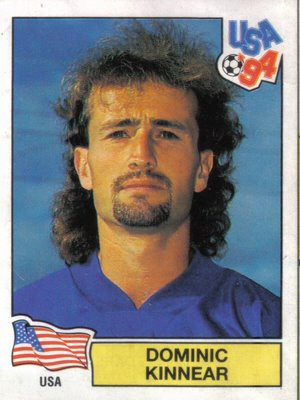
Dominic would go on to play for the US Men's National Team
SportsEdTV: So you're 11, and you've just decided this is your dream. What was the rest of your youth experience like? And were you feeling like you could make it pro as you went along the journey?
Dominic: I remember back then in the United States, it was a difficult time for professional soccer around the early 80s. There were small leagues out here. The San Jose Earthquakes still didn't have a professional soccer team at that time. I was part of a really good youth setup coached by my father. We had a couple of really good players, John Doyle was a teammate of mine there who would go on to play in the Olympics and in a World Cup. We had a real good team and wanting to play pro was obviously a dream. But the realistic chance of playing professional soccer in America was kind of dwindling because the professional leagues were never really sustaining a consistent run back then. So for us it was really a focus on first playing high school soccer and club soccer. And then if you can possibly get a chance to go play college, that would be the path to go. We took it a step at a time. So the University of San Francisco, which was a really good team, was a destination for many players. It was a tough destination for American players because the university had a number of very skilled European kids. But it was still the next stop. Looking at the professional scene from when we were at 17, 18 years old was a definite long shot. You had to be a little bit lucky for one thing, and the professional landscape of soccer was a heck of a lot different than it is now, less stable, less structured.
SportsEdTV: You did play one season in college. Tell me about that and tell me about how you also decided to move away from that and try your luck back in Scotland.
Dominic: We had a player in our youth team who played for a college in upstate New York with a really good soccer program. I think they made the NCAA Final Four the year before in 1984. I began attending and playing there in 1985, my freshman year at college. That was really my first time away from home. I had a hard time adjusting to life outside of the soccer field. I was never a wonderful student. I was a little bit overwhelmed with the schooling I would say, but the soccer part was fantastic. We had a good team and made the semifinals again. I played pretty much every minute of the entire season, so I had a real good season as a freshman coming in. But then around Christmas time, when Christmas break was about to happen, I made a decision against probably everybody's wishes that I did not want to return to New York. Which is still kind of frowned upon by my parents years afterwards!
I had just decided that I wanted to return to California, go to community college, get my grades together and possibly go to the University of San Francisco, where my good friend John Doyle was going. In the meantime, I kind of got a hint of playing professional soccer and some trials in Scotland. So I went over to Scotland for a little bit, and played with a team called Queen's Park, an amateur team in the Scottish Second Division. I also went on trial with the club called St Johnson, which is in the Scottish Premier League now but I think back then was in the Scottish First Division. I played with them for a little bit, but it didn't really work out. I probably wasn't good enough to play for them. Looking back at it now I was a bit young, a little bit physically weak for that level. And then I just felt that would be a good time for me to kind of come back to the States and just finish my education.
SportsEdTV: And then what happened?
Dominic: The education part never really did fulfil its potential or dreams, but there was a semi-pro soccer team starting up in the late 80s here. It was called the San Francisco Bay Blackhawks, run by a man called Dan Van Voorhis, and I attended a local tryout. The college scene in the Bay Area at the time was really good. It produced a lot of future professionals. So I joined the Blackhawks. The first year we had quite a squad. Eric Wynalda was on the team. Marcelo Balboa was on the team. John Doyle, Mark Dougherty, Tim Martin. Paul Bravo, who had a good MLS career. So that team was in great shape. We had a good run for about three or four years along the way. My game was improving to the point where in 1990, after the World Cup was over, I was invited into the National Team camp by then coach Bob Gansler, and that was the start to my three to four year run with the U.S. World Cup team. The steps of my career were going upwards rather than kind of staying flat or going down, so it was a great period of time. It was fun. We were all a little bit naive. All we wanted to do was play. We had a little bit more money in our pockets, travelling around. It was great.
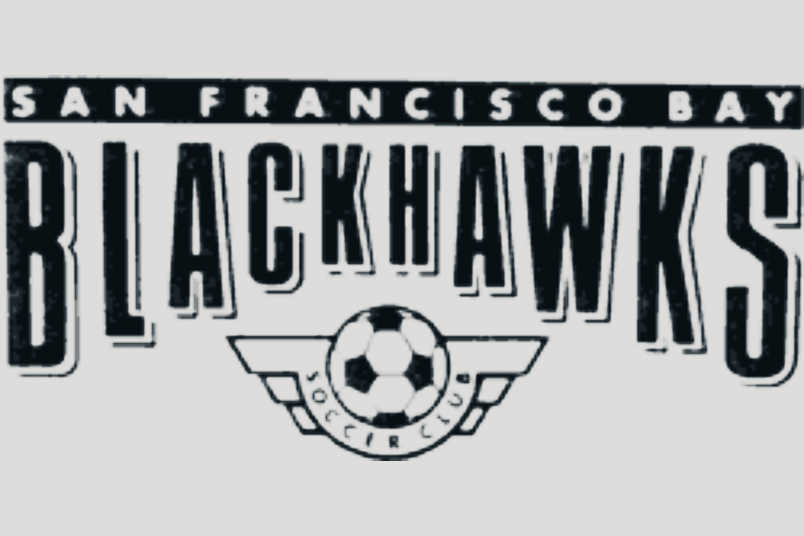
The Blackhawks were founded in 1989
SportsEdTV: There are a lot of players at that critical stage trying to play professionally, being in their early twenties, and approaching this point where oftentimes they're going to make it or not make it within a short amount of time. This can be a very pressuring time for players. As you look back on your own career at that point, what was your mindset like? What helped you to keep moving up?
Dominic: Yeah, it can be a challenging time. It was definitely different back then compared to now. Now it's much more structured with so many high level college teams and the MLS draft, and academies that are attached to certain MLS teams, and now they have MLS next league, it's incredible. Back then for us, it was a few guys in a car. Everyone chipped in a couple of bucks so we’d have enough gas money to get to training. I think we did it more for the love of the game, you know, and to keep ourselves busy. I don't think any of us thought that we were going to play professionally. Like I said, my buddy John played the Olympics, the World Cup, but for us at that time it was just kind of keeping ourselves busy, keeping ourselves playing. I think looking back, there's a lot I would not trade for those experiences because, you know, I still have great friends and memories from those days. So during that period, the pressure wasn’t so prevalent.
On the other hand, when I had gone to Scotland and things weren't going well, you know, it was one of those difficult times. I just kind of like, OK, I'm going to go home. And I think maybe if I stick it out a little bit more, maybe I could make a career over there, but the uncertainty was there. Even in 1994, after the World Cup was over, I was playing well and with the U.S. national team. I went on trial with Bolton Wanderers for two weeks, and the trial didn’t go so great. They signed a different player. And at that point, I thought, ‘OK, I'm just going to go back to the states again’, where another couple of teams were interested in looking at me to sign. It's one of those, ‘Do I stick out a little bit more?’ questions. But in the end, I look at it and I think it was the right decision. I think I got the most out of my career and my abilities. So I look back on it without too many regrets, and some great experiences. And I think the path was probably the best part of it because like I said, with the Blackhawks, we would go practice three nights a week. A group of six or seven plus would go to the local restaurant around the corner after, listen to the jukebox, and talk about practice. You don't get that anymore as much because people are so busy and they're getting dragged here and dragged there, you know? So when I think back on the path I took, it’s plenty of great memories.
SportsEdTV: You weren't really feeling the pressure at that point or too consumed with thoughts like, ‘I have to make it professional’, ‘What if I don’t make it?’, and those anxieties?
Dominic: No, no, it never really felt that serious for me at that time. I think I've done some interviews where they asked, ‘How did you feel being a pioneer for the sport of soccer?’ I never felt that way. I never looked at it like that. Maybe because I was just too narrow minded. All I wanted to do was play. There weren’t so many opportunities or ways to make it pro back then, so for us, it was just, ‘Can you keep playing? Can you catch a break and make it?’ But I never obsessed over it. Back then, it wasn't like, ‘I'm doing this because I have a plan’. I just kept playing because I never wanted to stop.

